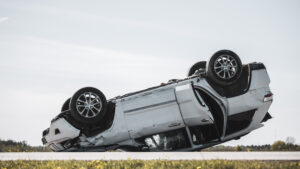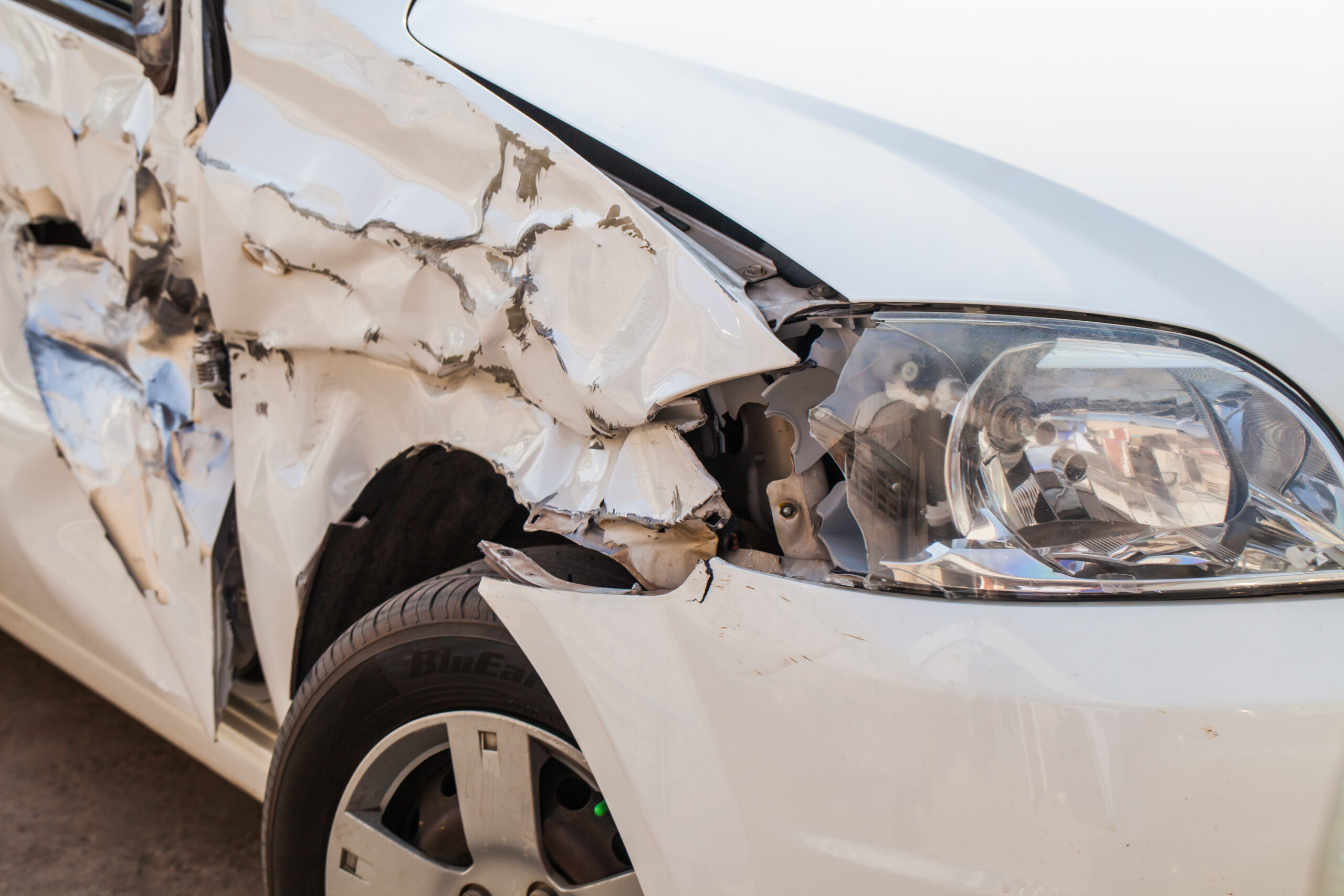I-77 in West Virginia is particularly dangerous due to its winding roads, steep inclines, and unpredictable weather conditions, especially during winter. Fog, snow, and ice can make the highway treacherous, leading to reduced visibility and slick surfaces. Negligent drivers exacerbate these risks by failing to adjust their driving to the conditions. Speeding, tailgating, and distracted driving become even more hazardous in poor weather.
Drivers who ignore these dangers or fail to exercise caution can easily lose control of their vehicles, leading to severe accidents. In fact, the combination of challenging terrain and negligent behavior makes I-77 one of the more dangerous roads in the state.
If you recently suffered injuries in a motor vehicle crash on I-77 in West Virginia, a skilled West Virginia car accident attorney can handle every step of the legal process for you. Your lawyer will aggressively fight for your rights, negotiate with insurance companies on your behalf, and pursue the compensation you need for all of your accident-related losses.
Most Common Types of Accidents That Occur on I-77 Due to Others’ Negligence
Interstate 77 (I-77) in West Virginia is a major highway that experiences various types of accidents due to driver negligence.

- One frequent type of accident on I-77 is fatal collisions. These crashes often happen when a driver fails to maintain a safe distance from the vehicle ahead. This negligence is exacerbated in poor weather conditions, such as rain or fog, which can reduce visibility and increase stopping distances. Drivers who tailgate or are distracted with their phones are more likely to cause these types of accidents.
- Another common accident on I-77 involves lane changes. Drivers who change lanes without signaling or properly checking their blind spots can easily collide with vehicles in adjacent lanes. This negligence can lead to side-impact crashes, which are particularly dangerous and can result in serious injuries. Drivers who are not aware of their surroundings or who are in a hurry are more likely to cause such accidents.
- Speeding is another major issue on I-77. Drivers who exceed the speed limit or drive too fast for road conditions increase the likelihood of losing control of their vehicles. Speeding reduces the time a driver has to react to sudden obstacles, such as other vehicles braking unexpectedly or debris on the road. This often results in high-speed crashes, which can be severe and lead to significant damage and injuries.
- Driving under the influence of alcohol or drugs is also a significant cause of accidents on I-77. Impaired drivers have reduced reaction times, poor judgment, and impaired coordination, all contributing to their inability to navigate the road safely. These drivers are more likely to weave in and out of lanes, fail to obey traffic signals, and cause accidents that can have devastating consequences.
- Finally, distracted driving, such as texting while driving, is a prevalent issue on I-77. When drivers focus on their phones instead of the road, they are more likely to miss important cues, such as traffic signs or the actions of other drivers, thereby leading to collisions.
If you suffered injuries in one of these crashes resulting from another driver’s negligence, a skilled car accident lawyer can investigate the circumstances and determine your available legal options.
Common Injuries in Car Accidents on I-77
Interstate 77 (I-77) in West Virginia is a busy highway that often sees a mix of local traffic, long-haul truckers, and tourists. Given the terrain and weather conditions in West Virginia, car accidents on I-77 can be particularly severe. When these accidents occur, they often lead to a range of common injuries, some of which can have lasting effects on the victims.
One of the most frequent injuries in car accidents on I-77 is whiplash. Whiplash occurs when the neck suddenly jerks back and forth, typically in rear-end collisions. This violent motion can strain or tear the muscles and ligaments in the neck, leading to pain, stiffness, and sometimes chronic problems if not treated properly.
Head injuries are also common in these accidents, ranging from concussions to more severe traumatic brain injuries (TBI). The sudden impact of a crash can cause the brain to collide with the inside of the skull, leading to bruising, bleeding, or swelling. Any head injury can have serious consequences, affecting memory, cognition, and overall brain function.
Broken bones are another frequent result of car accidents on I-77. The force of a collision can easily fracture arms, legs, ribs, and even the pelvis. Depending on the severity of the break, victims may require surgery, physical therapy, and a long recovery period.
Spinal cord injuries are among the most serious injuries seen in these accidents. When the spine is damaged, it can lead to partial or complete paralysis. Such injuries often require extensive medical treatment and can result in permanent paralysis disability.
In addition, soft tissue injuries, including bruises, sprains, and strains, are common in car accidents. These can cause significant pain and discomfort, sometimes leading to long-term issues if not addressed properly.
Proving a Car Accident Case in West Virginia
Proving the legal elements of a car accident case in West Virginia, particularly one that occurred on I-77, requires a thorough understanding of the law and careful gathering of evidence. To win such a case, you must establish four key elements: duty of care, breach of duty, causation, and damages.

- First, you must show that the other driver owed you a duty of care. In West Virginia, as in other states, all drivers have a legal obligation to drive safely and follow traffic laws. On I-77, this means driving at a reasonable speed, obeying traffic signals, and being mindful of road conditions, especially since West Virginia’s mountainous terrain and weather can make the highway particularly dangerous.
- Next, you must establish that the other driver breached this duty of care. A breach occurs when a driver fails to act as a reasonable person would under similar circumstances. For example, if the driver was speeding, driving under the influence, or distracted, they likely breached their duty of care. Evidence of this breach can come from various sources, such as police reports, traffic camera footage, or eyewitness testimony.
- The third element to prove is causation. You must show that the other driver’s breach of duty directly caused the accident and your injuries. This can be challenging, especially if multiple factors contributed to the crash. Expert testimony, such as from accident reconstruction specialists, can be crucial in establishing this link. They can analyze skid marks, vehicle damage, and other details to determine how the accident happened and who was at fault.
- Finally, you need to demonstrate that you suffered actual damages due to the accident. Damages can include medical expenses, lost income, pain and suffering, and property damage. Medical records, bills, and repair estimates can help prove the extent of your damages. Furthermore, keeping a detailed journal of your pain, emotional distress, and how the accident has affected your daily life can strengthen your case.
Successfully Litigating a West Virginia Car Accident Case
Litigating a common car accident case in West Virginia, especially one arising from an accident on I-77, involves several important steps. Understanding these steps can help you navigate the legal process and improve your chances of obtaining compensation for your injuries and damages.
- The first step is to gather evidence following the accident. This includes taking photos of the accident scene, obtaining contact information from witnesses, and getting a copy of the police report. If you suffered an injury, seeking ongoing attention is vital, not only for your health but also to document your injuries.
- Once you have gathered the initial evidence, the next step is to consult with an experienced West Virginia car accident lawyer. An attorney can explain your legal rights and options. They will review the evidence, assess the strength of your case, and discuss potential outcomes with you.
- If you decide to move forward, your lawyer will likely try to negotiate a settlement with the insurance company. This step is critical, as most car accident cases settle out of court. Your car accident attorney will present evidence of the other driver’s fault and the damages you have suffered to negotiate the best possible settlement.
- If settlement negotiations fail, the next step is to file a lawsuit in the appropriate West Virginia court. Your lawyer will draft a complaint that outlines the details of the accident, the injuries you sustained, and the compensation you are seeking. Once the lawsuit is filed, the other party, usually the at-fault driver and their insurance company, will have the opportunity to respond.
- After filing the lawsuit, the discovery phase begins. During discovery, both sides exchange evidence, take depositions, and gather testimony. This phase can be lengthy but is vital for building a strong case.
- If the case does not settle during discovery, it will likely proceed to trial. At trial, both sides present their evidence and arguments to a judge or jury. Your attorney will argue your case, presenting evidence and calling witnesses to prove that the other driver was at fault and that you deserve compensation.
- Finally, the judge or jury will reach a verdict. If they rule in your favor, they will determine the amount of compensation to which you are entitled. If the outcome is unfavorable, you may have the option to appeal the decision.
Types of Recoverable Compensation in an I-77 Accident Case
If you are involved in a car accident on I-77 in West Virginia, you may be entitled to various types of recoverable compensation. Types of damages include economic, non-economic, and punitive.
The first category of recoverable compensation is economic damages. These are tangible financial losses that can be easily calculated. Economic damages often include medical expenses, which cover the cost of hospital stays, surgeries, doctor visits, medications, and rehabilitation services. If your injuries require ongoing medical care, you may also be entitled to compensation for future medical expenses.
Another significant component of economic damages is lost income. If your injuries prevent you from working, either temporarily or permanently, you can recover compensation for the income you have lost. This can also include future lost earnings if your ability to work is impaired long-term. In addition, if your vehicle was damaged or totaled in the accident, you can seek compensation for the cost of repairs or the value of the vehicle.

Jeff Robinette, West Virginia Car Accident Lawyer
The second category is non-economic damages. These are more subjective and compensate you for the physical and emotional toll the accident has taken on your life. Pain and suffering is a common form of non-economic damage and accounts for the physical pain and discomfort you have experienced due to your injuries.
Emotional distress is another non-economic damage, which covers the psychological repercussions, such as anxiety, depression, or post-traumatic stress disorder (PTSD), resulting from the accident. Loss of consortium is a less common but important type of non-economic damage. It compensates you for the negative consequences the accident has had on your relationships, particularly with your spouse. This can include loss of companionship, affection, and even sexual relations due to your injuries.
In some cases, you may also be eligible for punitive damages. Unlike economic and non-economic damages, punitive damages are not meant to compensate you for a loss. Instead, they are intended to punish the at-fault party for particularly reckless or malicious behavior and to deter others from similar conduct. Punitive damages are less common and typically awarded in cases where the other driver’s actions were especially egregious, such as driving under the influence or engaging in extreme speeding.
Speak with a Knowledgeable West Virginia Car Accident Lawyer Today
If you suffered injuries in a car crash that occurred on I-77 in West Virginia, you have legal options to consider. A skilled West Virginia personal injury attorney can swiftly evaluate your accident circumstances and determine your available legal options for moving forward. Your lawyer can also file a claim or lawsuit on your behalf to pursue the compensation you deserve for your accident-related injuries. Don’t wait, hire an attorney today.
Jeffery Robinette was admitted to practice law in 1991 and is licensed in all levels of state and federal trial courts in West Virginia. Mr. Robinette is also licensed in all state and federal appeals courts in West Virginia and the United States Supreme Court. As a National Board Certified Trial Attorney who has handled hundreds of motor vehicle, injury, and construction defect claims and a leading author on insurance claims settlement issues and difficulties in West Virginia, Jeff Robinette is uniquely qualified to represent your best interest.





